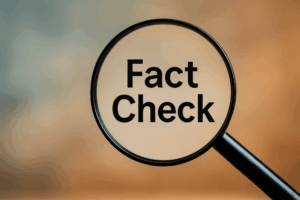
In recent years, Germany’s Alternative für Deutschland (AfD) has surged in popularity and become the second-largest party in the Bundestag.
Recently, to protect their power, the current ruling party and its supporters, did the unthinkable – they have labeled the AfD as extremist and seek to shut it out of the electoral process!
By maligning the AfD party and dismissing their voters and manifesto as dangerous to the country, Germany seems to be once again repeating the mistakes of it’s horrid past.
Let’s dive into the AfD’s 2025 manifesto and unpack the truth behind the accusations.
Note: Curious about the AfD’s manifesto? Skip misleading headlines and read its 2025 manifesto on afd.de. Compare it to the SPD’s or Greens’ platforms. Then ask yourself: are these parties so different, or are we just playing the label game?
What Does the AfD Stand For
The AfD’s 2025 election manifesto, adopted in January 2025 at its Riesa congress, is a bold blueprint for a “Germany first” vision.
Here’s a snapshot of its core policies:
- Migration and Integration: The AfD calls for stricter immigration controls, prioritizing border security and deportation of criminal or unintegrated migrants. It proposes “re-migration” campaigns to encourage voluntary returns, particularly for Syrian nationals, and a return to ancestry-based citizenship laws. The goal is to protect Germany’s resources and cultural cohesion.
- Economic Sovereignty: The party advocates exiting the eurozone to revive the Deutsche Mark, lowering taxes, and resuming Russian gas imports for affordable energy. It criticizes EU bureaucracy, and it demands that German aid be tied to migration cooperation.
- National Identity and Security: The AfD champions traditional German culture, proposing education reforms to emphasize language and history. It seeks to reinstate military service, end military aid to Ukraine and other wars, and bolster internal security through tougher policing.
- EU Reform: Skeptical of Brussels’ overreach, the AfD pushes for a reformed EU with less centralized power. If reforms fail, it floats a German exit (“Dexit”) to prioritize national sovereignty.
- Climate and Energy: The AfD opposes large scale green subsidies and other programs that limit individual enterprise. It favors coal, nuclear, and Russian gas to keep energy costs low. – Europe is promoting the same policies. (France is fully nuclear, while Germany has started using coal, and everyone uses Russian gas)
These policies have resonated with millions, particularly in eastern Germany, where the AfD secured up to 33% and is the dominant political party.
People see the party as a pragmatic voice for those frustrated by rising costs, unchecked migration, and a distant EU elite. To them, the AfD isn’t extremist—it’s a lifeline for a nation losing its way.
The Unfounded Allegations Against AfD
Despite its electoral success and pragmatic manifesto above, the AfD faces relentless criticism from it’s political opponents.
Germany’s domestic intelligence agency (BfV) labels parts of the party, like its Thuringia branch, as “suspected right-wing extremist.” Critics point to inflammatory rhetoric—anti-immigrant slogans, Islamophobic statements, and occasional downplaying of Germany’s Nazi past (e.g., former co-leader Alexander Gauland’s “bird shit” comment about the Third Reich). A 2023 meeting between some AfD members and people alleged to be neo-Nazis, discussed border security and mass deportation. That led to a negative media campaign and cries of “fascism. The Central Council of Jews in Germany, a left wing organization, has predictably stepped in to warn of so called “Nazi ideals”.
Let’s pause. Are these accusations grounded in the AfD’s actual platform, or are they a convenient way to silence dissent?
The AfD manifesto operates within democratic bounds. It doesn’t call for violence, authoritarianism, or the dismantling of elections—hallmarks of historical fascism. Instead, it emphasizes sovereignty, cultural pride, and economic pragmatism, much like populist movements in France, Hungary, or the U.S. The “re-migration” policy and deportations is a legal and often voluntary process, not totalitarian actions. And while some members’ remarks about the Nazi era are tone-deaf, the party officially distances itself from Holocaust denial or Nazi glorification.
The “far-right” label also feels selective.
- Migration concerns, for instance, aren’t unique to the AfD. Even Chancellor Olaf Scholz’s SPD has tightened asylum rules post-2025 election, echoing AfD talking points.
- And the current government has also restarted many coal plants to produce energy.
Yet, only the AfD is vilified. Its voters—21% of ordinary Germans worried about crime, housing, or cultural shifts—aren’t extremists; they’re frustrated citizens. Labeling them “far-right” risks alienating a fifth of the voting body, deepening division.
Could We Call the Opposition “Communists”
Here’s where the double standard becomes glaring. If we stretch labels to demonize the AfD, could we do the same to its opponents?
Take the growing unpopularity of the Social Democratic Party (SPD) or the Greens, who currently dominate Germany’s coalition government. Their policies – high taxes, expansive welfare, climate mandates, and EU integration – could be spun as “communist” by critics. After all, centralized economic planning, wealth redistribution, and globalist frameworks echo Marxist principles and remind us of Hitler, right?
Yet, no serious analyst calls the SPD or Greens “communist,” because it’s reductive and inflammatory.
All of these parties including the AfD operate within the framework of capitalism and democracy, although lately the Greens are leaning socialist.
The hypocrisy is clear: mainstream parties get a pass for their policies and actions, while the AfD party policies are weaponized to paint it as a boogeyman.
Both sides use rhetoric to rally their base—whether it’s the Greens’ “save the planet” urgency or the AfD’s “save Germany” patriotism.
If we’re going to sling labels, let’s be consistent—or better yet, drop them and debate the ideas.
Why the AfD’s Vilification is a Big Deal
The AfD’s critics argue that its rhetoric stokes division. That’s incorrect when the same can be claimed by opponents of the other parties. Striving to establish secure borders, lowering migration, and choosing not to participate in wars are items of debate, not dismissal.
In fact, shutting the AfD out of coalitions (the so-called “Brandmauer”) and branding it fascist actually shows that the real problem is not the AfD!
When 20% of Germans vote AfD, dismissing them as “deplorables” only widens the gap.
Moreover, the accusations risk trivializing history. Fascism, as seen in Mussolini’s Italy or Hitler’s Germany, involved state violence, censorship, and total control—none of which the AfD advocates. Once could argue that the current government is increasingly leaning towards those practices by suppressing political dissent. Throwing around “fascist” dilutes the term, making it harder to identify real threats. It’s like crying “communist” every time the Greens push a wind farm or reopen a coal plant. Hyperbole drowns out reason.
Protect Democracy and Let the People Decide
The AfD or the Greens aren’t perfect. Some of each party’s rhetoric is divisive. And they both unequivocally reject extremist fringes within their ranks.
Each party’s manifesto reflects concerns shared by millions. The AfD is riding a popular wave: economic strain, cultural drift, and distrust in elites. These aren’t “far-right” ideas; they’re human ones. By focusing on policies—migration caps, euro exit, energy realism—we can debate the AfD’s merits without resorting to name-calling.
The AfD is a regular, popular party with a mix of conservative and radical ideas. It aims to fix a fractured system. Dismissing it as “far-right” ignores the root causes of its rise. Just as we wouldn’t brand the SPD “communist” for raising taxes, we shouldn’t caricature the AfD to avoid tough questions.
Note: Curious about the AfD’s manifesto? Skip misleading headlines and read its 2025 manifesto on afd.de (available in German). Compare it to the SPD’s or Greens’ platforms. Then ask yourself: are these parties so different, or are we just playing the label game?

